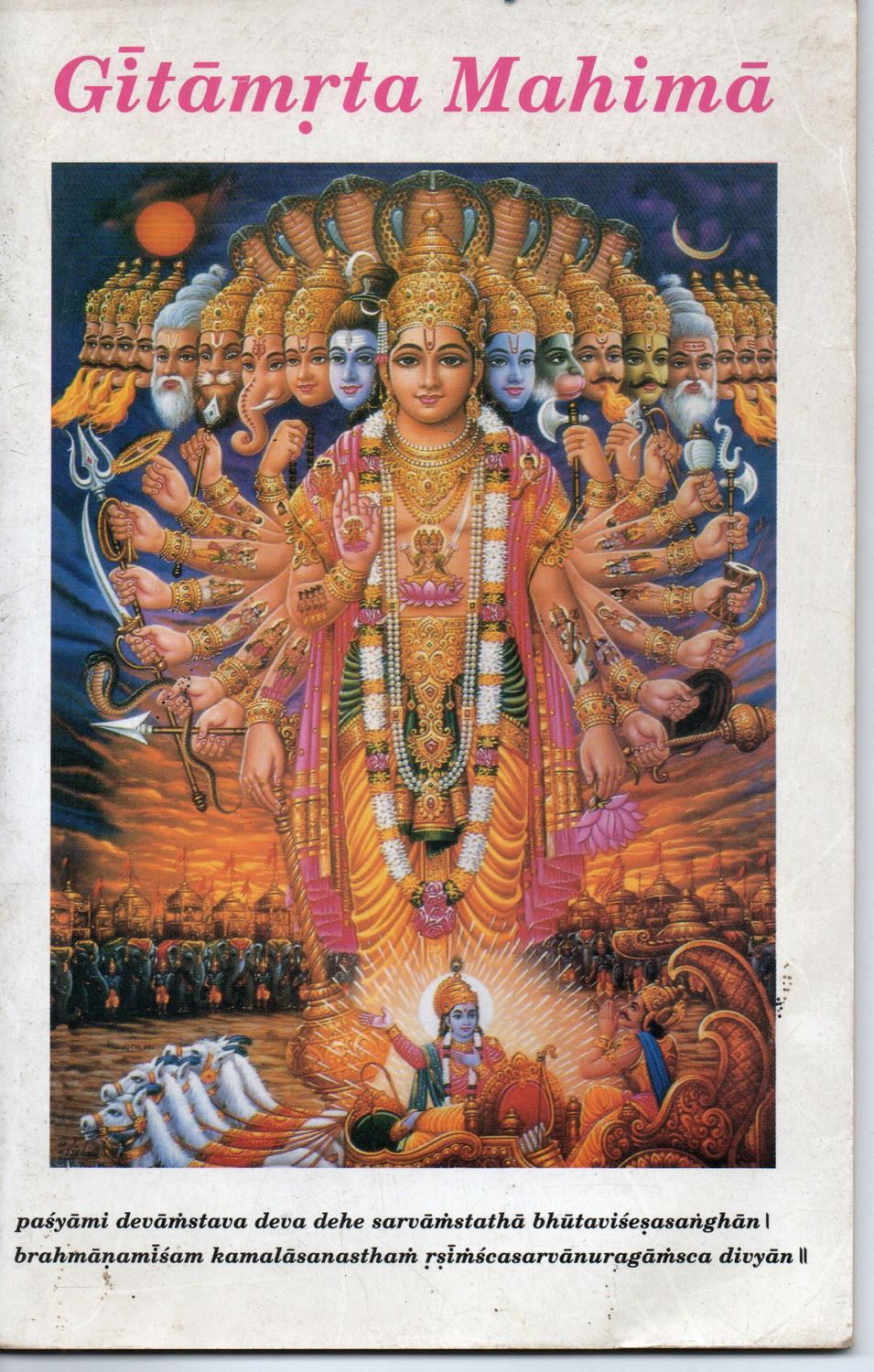Gitamrta Mahima (English) Old Book
"Gitamrita Mahima" is a Sanskrit term that can be broken down to understand its meaning:
- Gita: Refers to the Bhagavad-gita, the sacred Hindu scripture.
- Amrita (or Amrit): Means "nectar," "immortal," or "divine elixir."
- Mahima: Means "greatness," "glory," or "magnificence."
So, "Gitamrita Mahima" literally translates to "The Glories of the Nectar of the Gita."
This term is used to describe the profound and transformative power of the Bhagavad-gita. It emphasizes that the teachings of the Bhagavad-gita are not just ordinary verses but a divine nectar that can cleanse one's consciousness and liberate one from the miseries of material existence.
The "Gita Mahatmya" (glorification of the Gita) found in various Puranas, like the Padma Purana, elaborates on this theme through stories and verses. These texts highlight the immense benefits of reading, studying, and living by the principles of the Bhagavad-gita, promising liberation from the cycle of birth and death.
A key verse often cited in this context is:
mala-nirmocanam pumsaṁ jala-snānaṁ dine dine sakṛd gītāmṛta-snānaṁ saṁsāra-mala-nāśanam
This verse states that while one can cleanse the body by bathing in water daily, a single "bath" in the nectar of the Gita can permanently destroy the dirt of material life.
In summary, "Gitamrita Mahima" is a term that encapsulates the transcendental nature and spiritual potency of the Bhagavad-gita, presenting it as a divine source of knowledge that can lead to ultimate purification and liberation.

